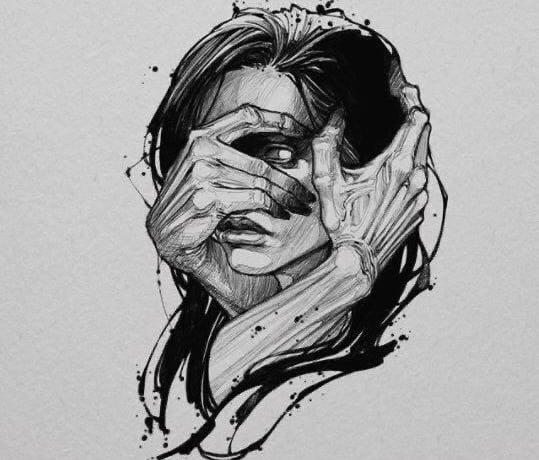Navigating Anxiety, Stress, and Mental Health: A Comprehensive Guide
This blog explores the impact of mental health issues and the resources available, from therapy to medications like Wellbutrin, to help you regain control and improve your quality of life
9/7/20243 min read


1. Understanding Anxiety and Its Symptoms
Anxiety can be a normal stress reaction, but when it becomes chronic, it can lead to disorders like generalized anxiety, social anxiety, and panic disorders. Common anxiety symptoms include restlessness, excessive worry, trouble concentrating, and irritability. More severe cases might lead to panic attacks, which cause overwhelming fear, chest pain, dizziness, and shortness of breath.
If you experience persistent anxiety, seeking help from a psychologist near me can make a big difference. Therapists and counselors are trained to help you manage anxiety through techniques like Cognitive Behavioral Therapy (CBT) or Better Help therapy, which offers online sessions for convenience.
2. The Heavy Toll of Stress
Stress is something we all encounter, but chronic stress can affect mental and physical health. Prolonged exposure to stress can exacerbate anxiety and lead to other mental health conditions like clinical depression or borderline personality disorder.
Managing stress through relaxation techniques, mindfulness, and regular therapy sessions with a mental health therapist near me can help prevent it from spiraling into more serious conditions. Finding mental health services near you is essential for long-term stress management.
3. Depression: Recognizing the Signs
Depression is more than just feeling sad; it’s a serious mental health disorder that affects every aspect of life. Common signs of depression include a loss of interest in activities, persistent sadness, fatigue, changes in appetite, and difficulty sleeping.
Those suffering from clinical depression may also experience suicidal thoughts, making it critical to seek help early. Medications like Wellbutrin can help manage depression, but therapy is often an essential part of treatment. A mental health counselor or mental health therapist near me can offer support, guidance, and coping strategies.
4. Bipolar Disorder: Managing Mood Swings
Bipolar disorder is a mental health condition characterized by extreme mood swings, including periods of depression and mania. During manic episodes, individuals may feel euphoric, overly energetic, and impulsive, while depressive episodes can bring overwhelming sadness and fatigue.
Managing bipolar disorder requires long-term treatment, often involving a combination of medications, like mood stabilizers, and therapy. Finding a psychiatrist near me or a mental health facility near me is essential for proper diagnosis and ongoing treatment.
5. PTSD: Coping with Trauma
Post-traumatic stress disorder (PTSD) occurs after experiencing or witnessing a traumatic event. PTSD symptoms include flashbacks, nightmares, severe anxiety, and uncontrollable thoughts about the event. Some individuals may also experience panic attacks related to triggers from their trauma.
For those suffering from PTSD, specialized mental health services are crucial. Therapy options like trauma-focused cognitive behavioral therapy can help individuals process their trauma and develop healthy coping mechanisms.
6. Postpartum Depression: When Motherhood Becomes Overwhelming
Postpartum depression affects many new mothers and can make the early stages of motherhood challenging. It’s more than just the “baby blues”—it’s a severe form of depression that can make it difficult to bond with your baby, feel joy, or manage daily tasks.
If you or someone you know is experiencing postpartum depression, seeking immediate help from a mental health facility or therapist can offer relief. Early intervention is crucial to ensure both the mother’s and baby’s well-being.
7. Other Mental Health Conditions: Schizophrenia and OCD
Schizophrenia is a serious mental health disorder that affects how a person thinks, feels, and behaves. People with schizophrenia may seem like they have lost touch with reality, experiencing hallucinations and delusions. Managing this condition often requires lifelong treatment and support from a mental health facility near me or a specialized mental health team.
Similarly, Obsessive-Compulsive Disorder (OCD) involves unwanted, intrusive thoughts (obsessions) and repetitive behaviors (compulsions). Therapy and medications can help manage these symptoms, allowing individuals to lead more normal, productive lives.
8. Getting Professional Help: Mental Health Services and Facilities
Finding the right professional help is the first step in addressing mental health challenges. Whether you're dealing with anxiety, depression, or more severe conditions like bipolar disorder or schizophrenia, it’s important to seek support from professionals at mental health facilities near me or through a mental health counselor. Many facilities provide specialized services, such as medical weight loss programs, psychiatric care, and counseling for specific disorders like OCD or PTSD.
If you're unsure where to start, searching for a psychologist near me, or mental health near me can direct you to qualified professionals who offer assessments, therapy, and ongoing support.
9. The Role of Medications in Mental Health Treatment
Medications can be an important part of treating mental health conditions. For instance, Wellbutrin is often prescribed for depression as it helps regulate mood by affecting neurotransmitters in the brain. Similarly, antipsychotic drugs are used for conditions like schizophrenia, while mood stabilizers are crucial for managing bipolar disorder.
It’s essential to consult a psychiatrist or mental health professional when considering medication, as they can tailor treatments to your specific needs.
Girlies
Have questions or need support? We’re here to help!
Enjoy
+1234567890
© 2024. All rights reserved.
